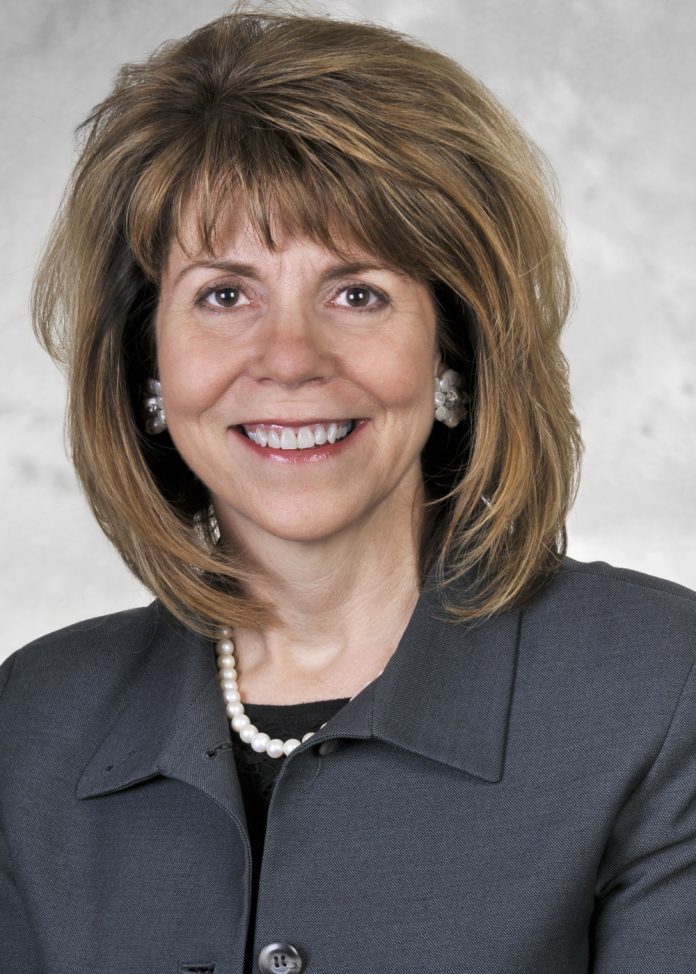Lori Daiello is a research scientist and clinical research administrator with the Alzheimer’s Disease and Memory Disorders Center at Rhode Island Hospital. Daiello is also an assistant professor in both the Warren Alpert Medical School of Brown University and Brown’s School of Public Health. She was among six researchers chosen to be content experts and authors for this year’s report, “The Impact of Mental Well-Being on Brain Health,” published by The Global Council on Brain Health, an international collaboration between AARP and Age UK.
PBN: Can you explain your contribution to the study as a content expert and author for the report?
DAIELLO: I was honored to be included among the highly regarded international researchers chosen to assist with developing the Global Council on Brain Health’s 2018 report on brain health and mental well-being. Content experts were charged with distilling the existing scientific evidence on the topic into practical recommendations that might stimulate positive behavioral changes – a daunting task!
Recognizing that mental well-being is likely influenced by multiple factors, including the potential impact of medication on cognitive health, the GCBH leadership recruited content experts from a number of key disciplines. I’m a clinical and health services researcher, who has been interested in the effects of medications on the aging brain for over 20 years.
PBN: How much of this report reinforced your prior knowledge/suspicions about dementia and mental well-being?
DAIELLO: Given a growing appreciation for the negative longer-term impacts of certain types of stress on brain function, I’d often wondered about possible links between early-life trauma and Alzheimer’s disease in late life. When I did a comprehensive review of the scientific evidence for this project, I was interested to find an uptick in the number of more recent publications on this subject, as well as relationships between dementia risk and other components of mental well-being. This information is summarized in the full report.
PBN: The report appears to recommend going out of your way to live a happy life and take care of yourself and remain involved with family, friends and community. These things you’d associate with common sense advice have some clinical evidence behind them now. What are your thoughts about how this affects health care?
DAIELLO: The impact on health care could be significant. Dementia is a devastating and costly condition, with an estimated direct cost of $277 billion in the United States in 2018, according to the Alzheimer’s Association. Right now, about 5.5 million people in the U.S. are living with Alzheimer’s, and with the aging of baby boomers, that number is projected to nearly triple by 2050.
This is a disease for which there is no current cure or effective treatment. Researchers are increasingly interested in the extent to which Alzheimer’s disease could be prevented by taking action in early or mid-life to curb known risk factors for dementia. Last year, a paper published in The Lancet stated that 35 percent of dementia cases could be prevented by modifying nine risk factors; this list included social isolation, a component of mental well-being.
PBN: As people age, avoiding multiple medications becomes pretty difficult – is this simply a risk factor older people will need to manage rather than avoid?
DAIELLO: While there is little evidence that demonstrates the health-related benefits of taking multiple medications, a rapidly growing body of research in geriatric medicine links polypharmacy with a sizeable list of potential dangers, including falls, memory problems, hospitalizations and many others. The risk of experiencing one of these serious events is substantially increased as the number of medications rises; however, multiple medications may be necessary to effectively manage patients with multiple chronic conditions of aging [such as] heart disease, hypertension, arthritis and diabetes.
It is this complex reality that continually challenges clinicians who care for older adults. Not surprisingly, the prevalence of polypharmacy in the U.S. is also increasing; among older adults taking part in a large national study, 67 percent reported taking a total of five or more medications daily in 2010-2011, compared with 53 percent of a similar group in 2005-2006.
In addition to the multiple medications used to treat medical conditions, recent studies have shown that many older adults are taking medication to improve sleep or manage anxiety. It’s important to recognize that a number of medications prescribed for these purposes can cause or worsen existing problems with memory or thinking abilities – in some cases, side effects can masquerade as symptoms of Alzheimer’s disease.
For these reasons, I recommend that all older adults strive to take the fewest number of medications necessary. This goal can be accomplished through regular dialogue with their doctor or other clinicians who prescribe their medications and should include a thorough review of all medications, including supplements and over-the-counter drugs, at least yearly.
PBN: There seems to be a message here that you need to be extremely self-reflective to take this advice to heart. Do you have any advice for people who might have trouble thinking outside their current state of mind?
DAIELLO: It can be very difficult to be self-reflective in the face of life’s many challenges, particularly for older adults who may be struggling with illness, social isolation and economic hardship. For this group, focusing on the recommendations in this report related to physical health could be helpful, in that feeling better physically may have positive effects on mental well-being. Another strategy might be seeking support from a caring and trusted family member, friend or spiritual adviser who could assist and guide the individual in implementing some of the recommended lifestyle changes.
Rob Borkowski is a PBN staff writer. Email him at Borkowski@PBN.com.













